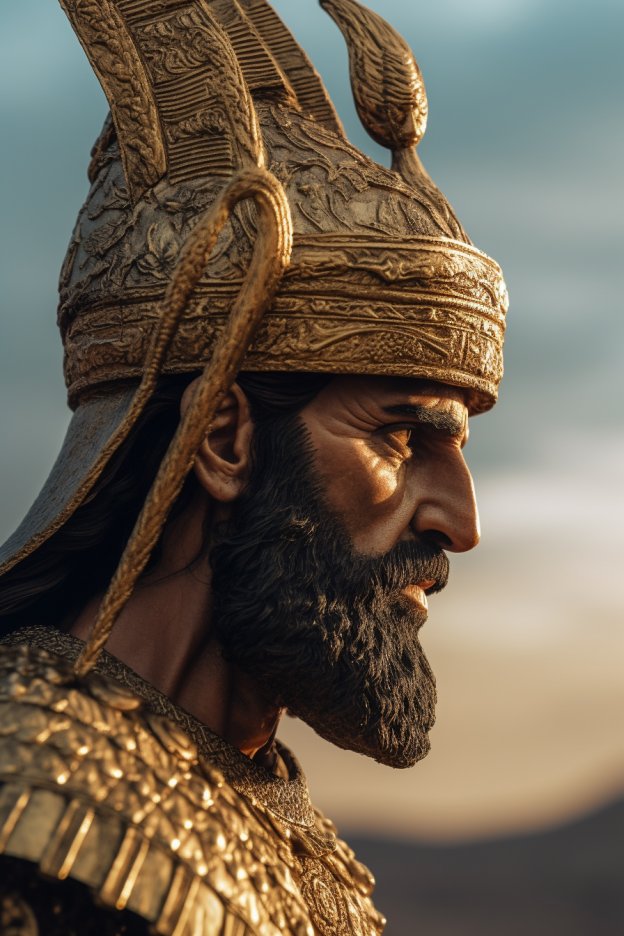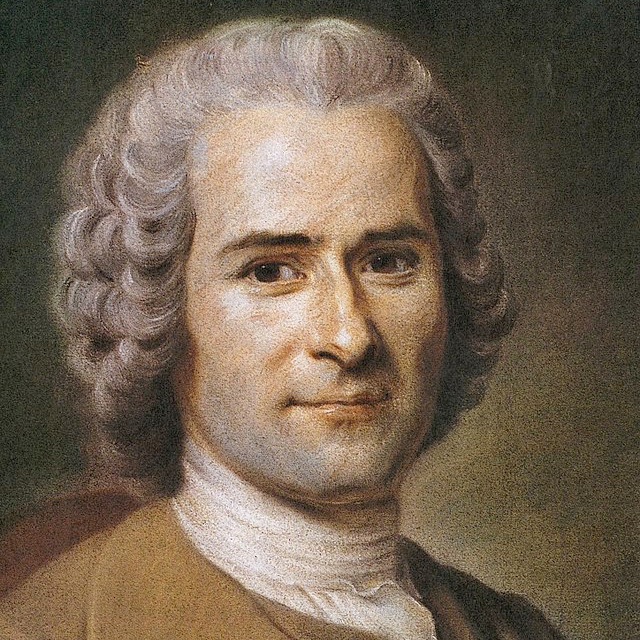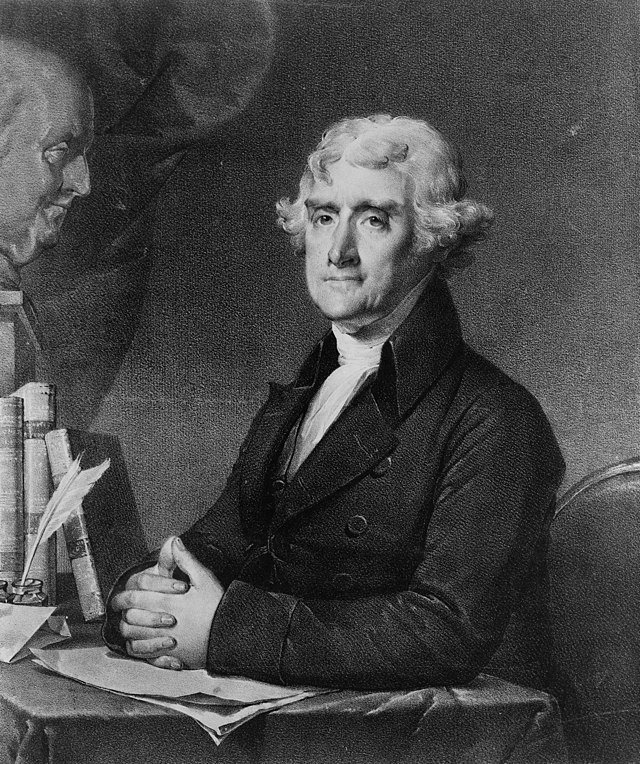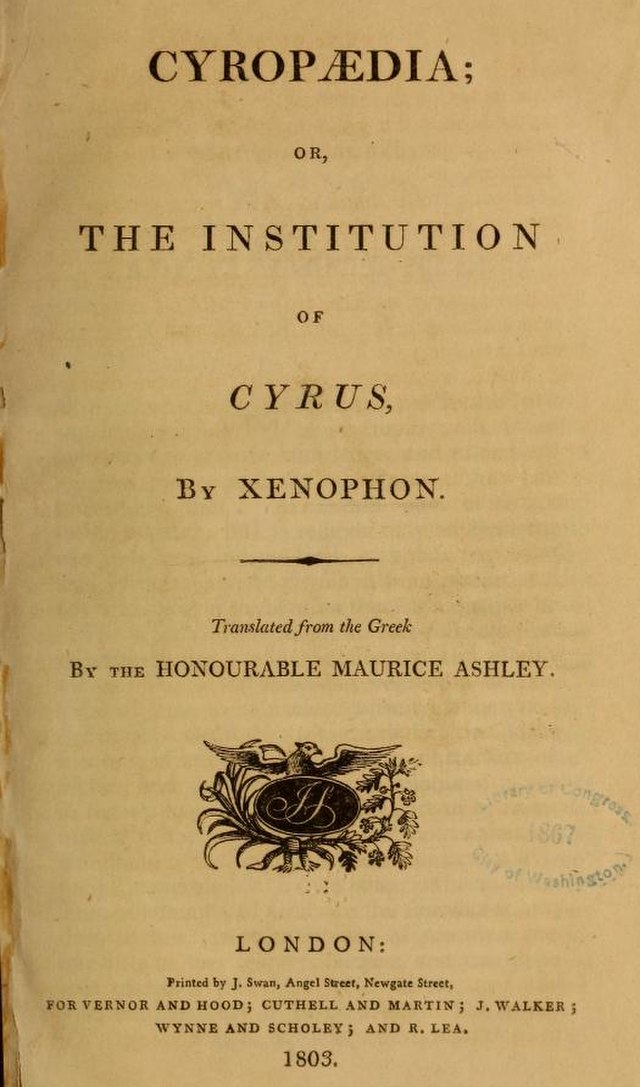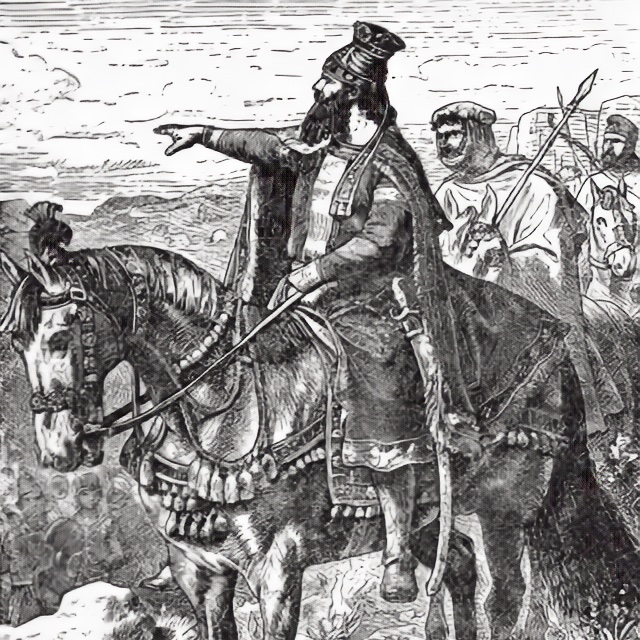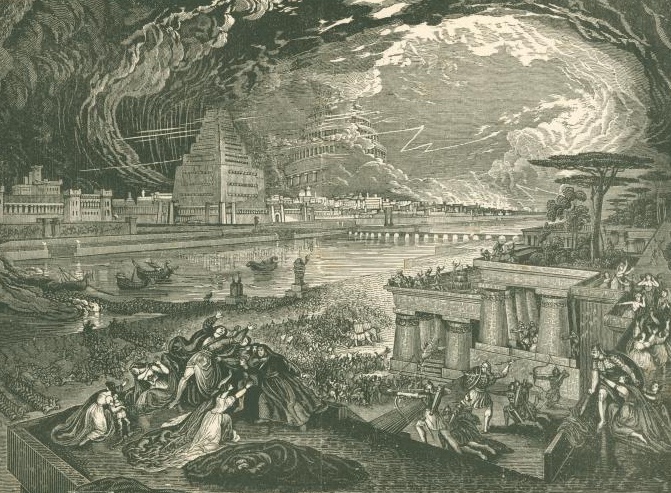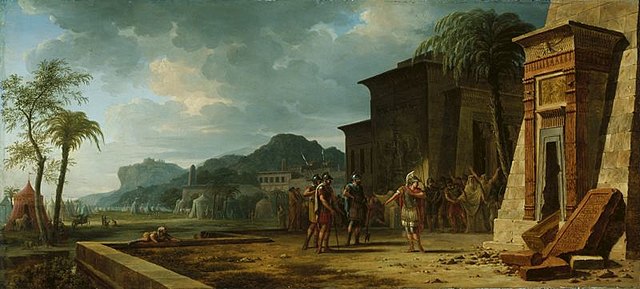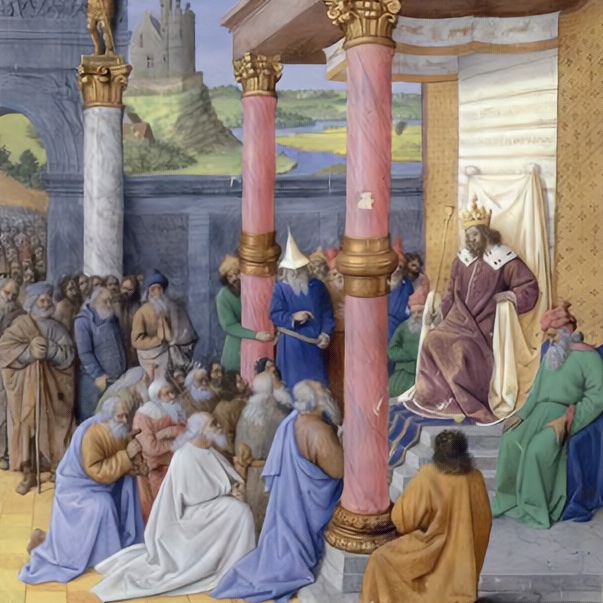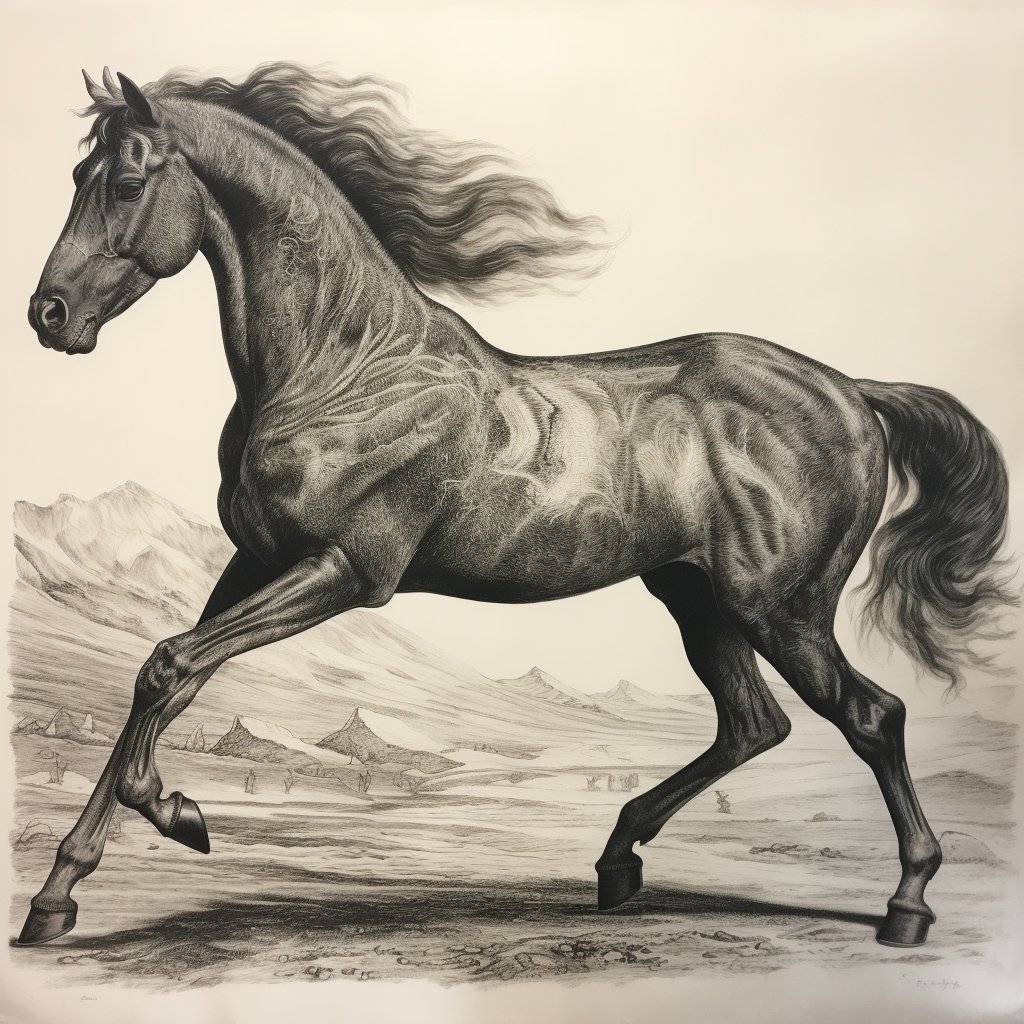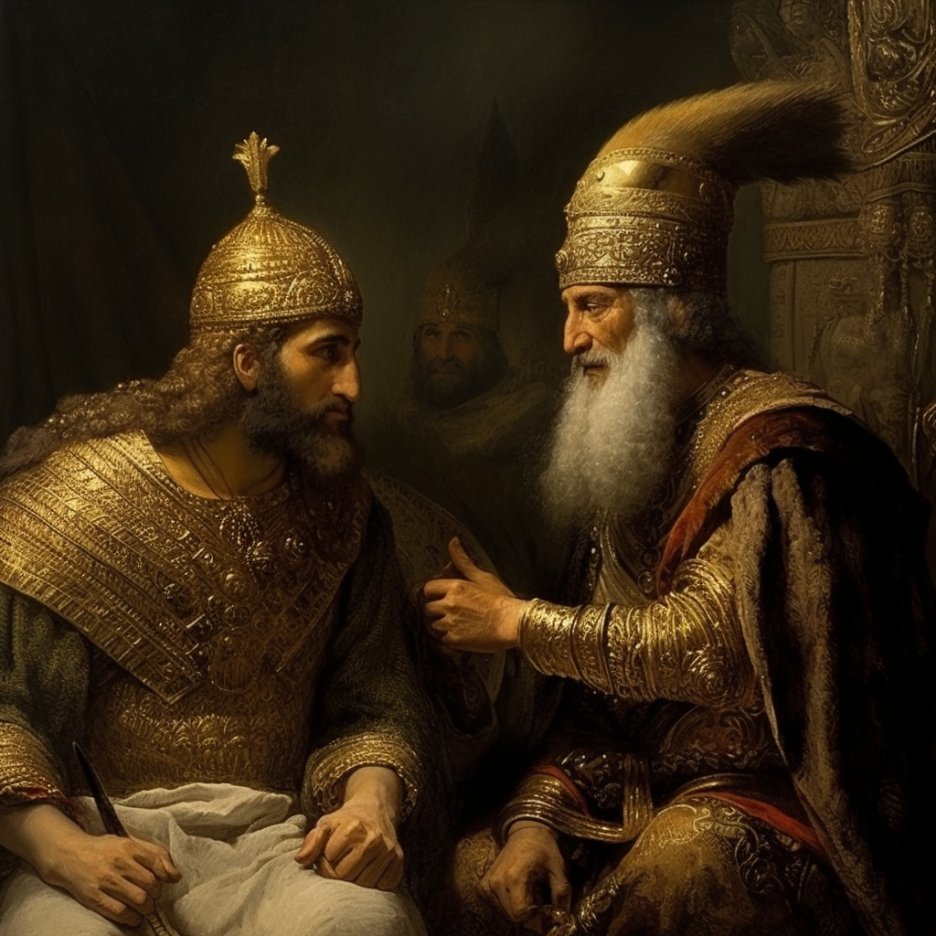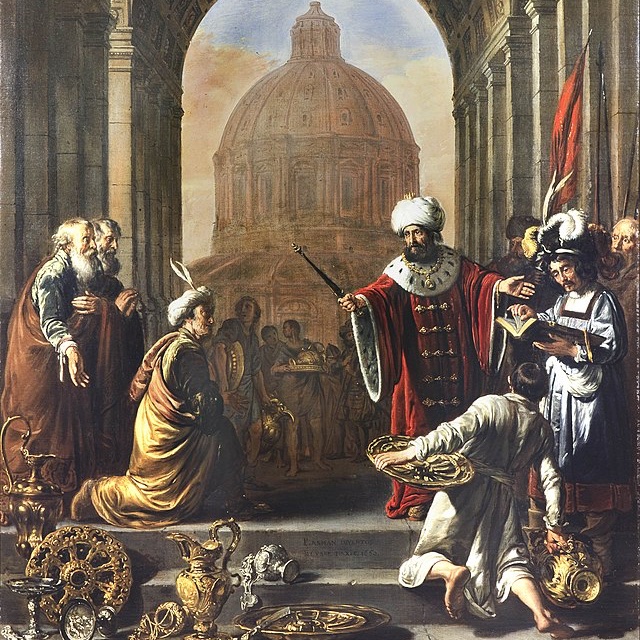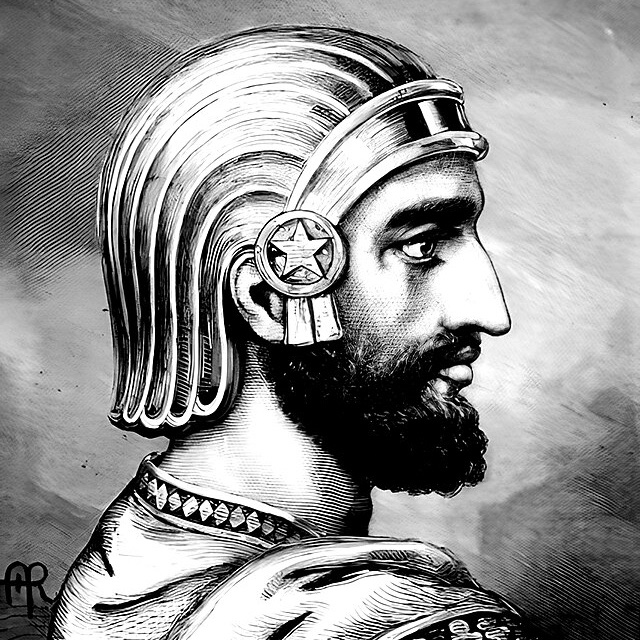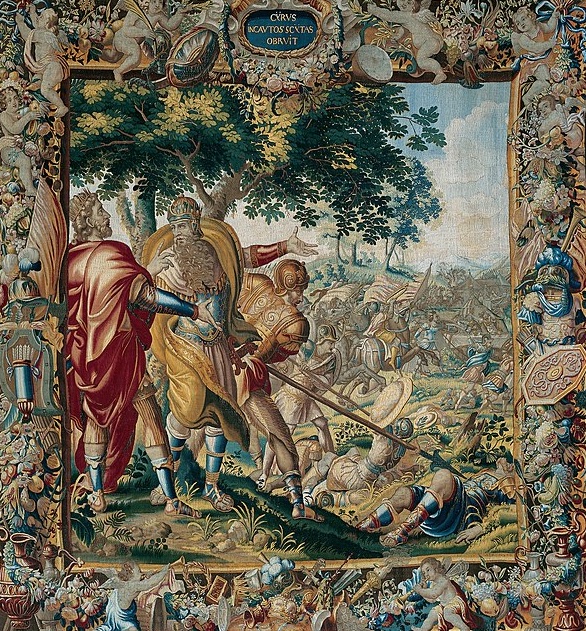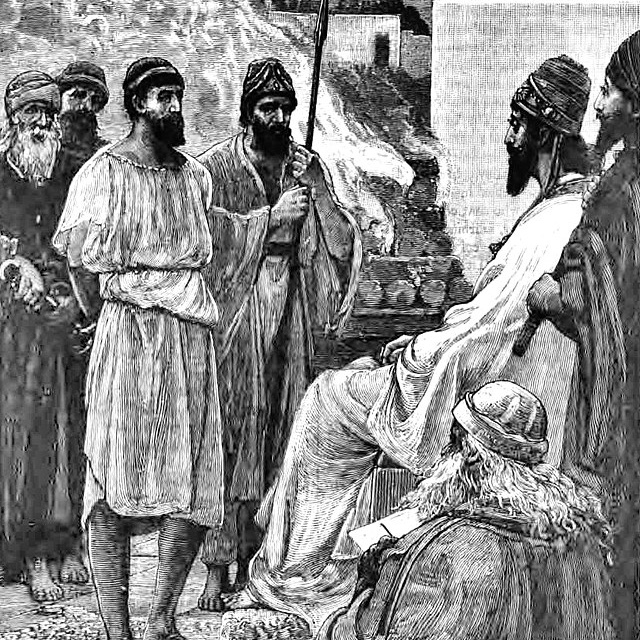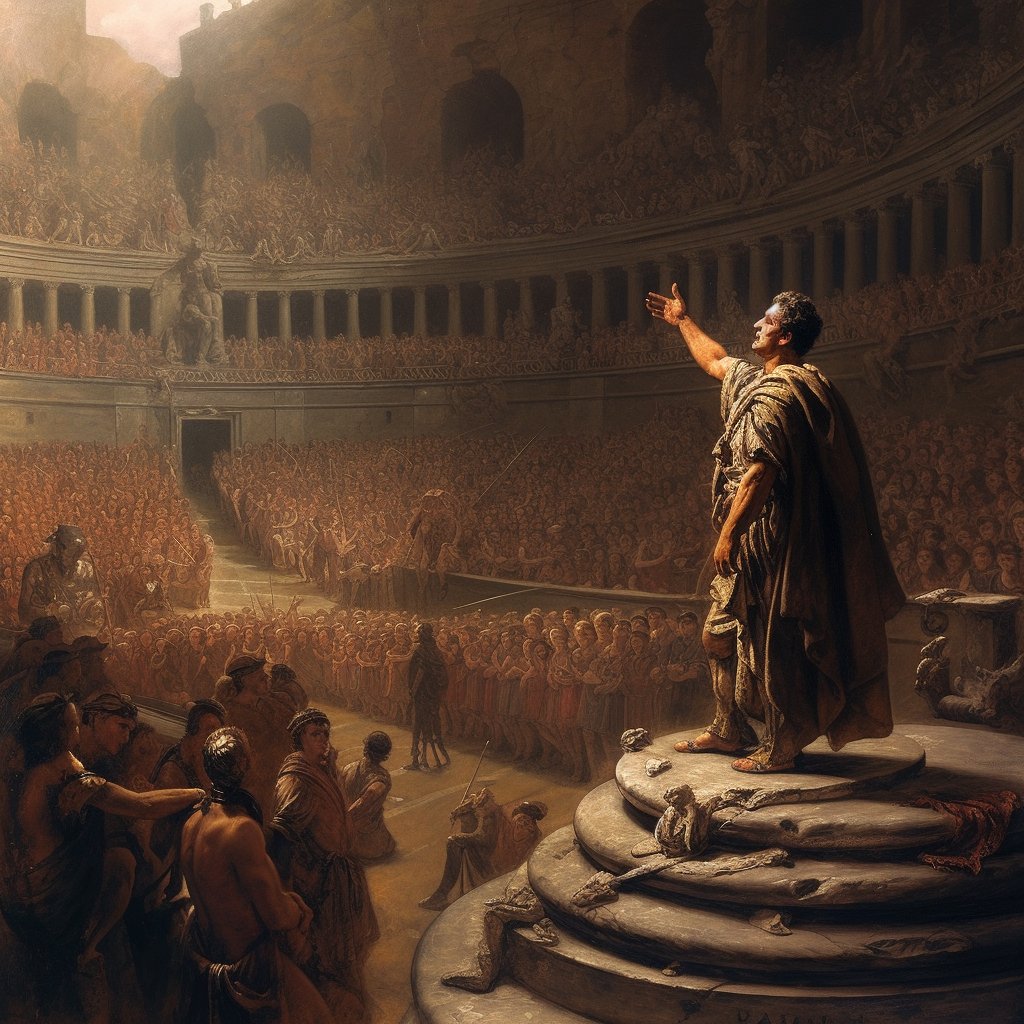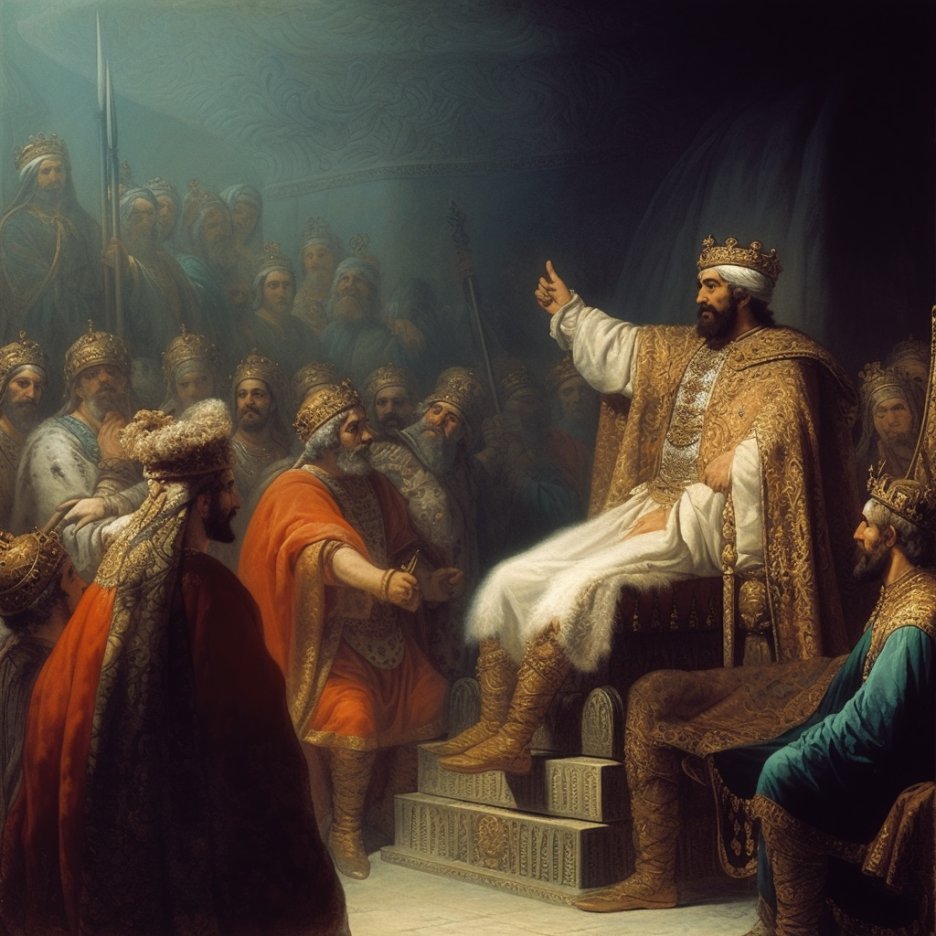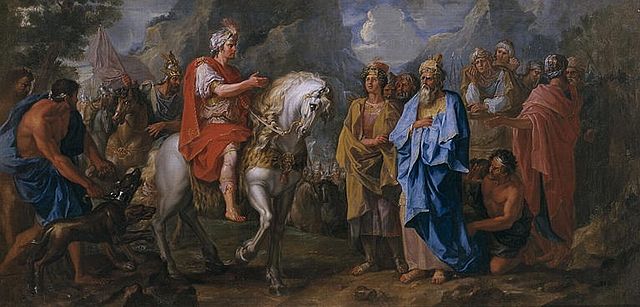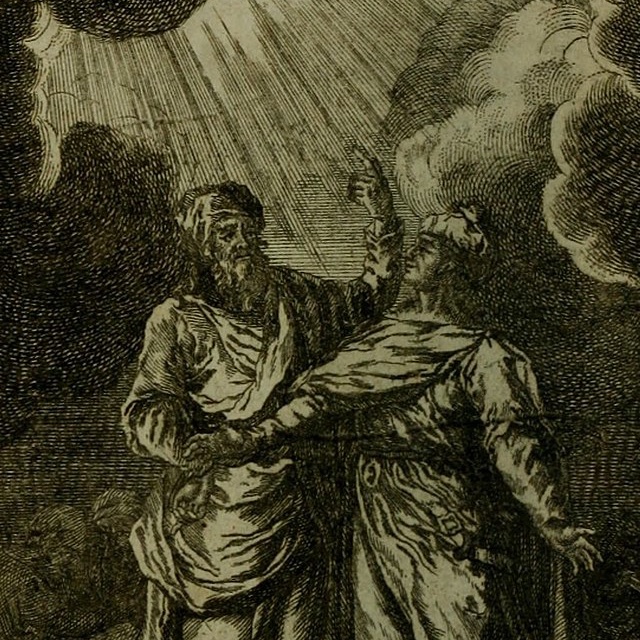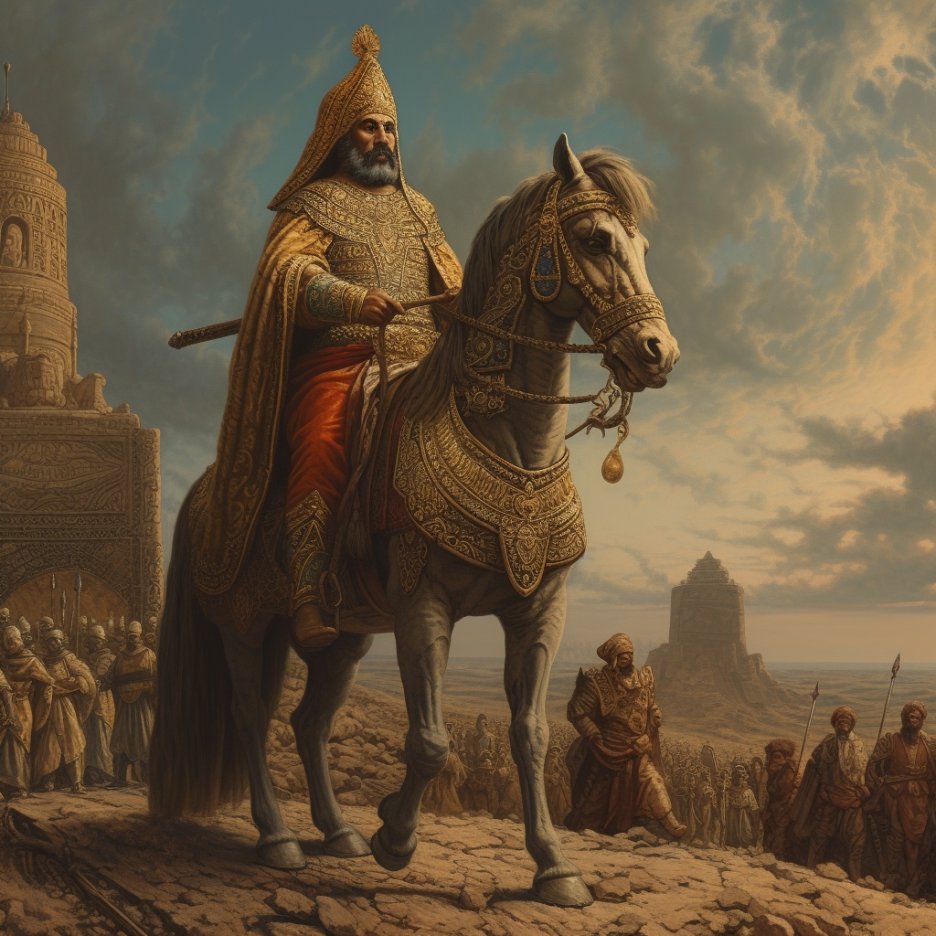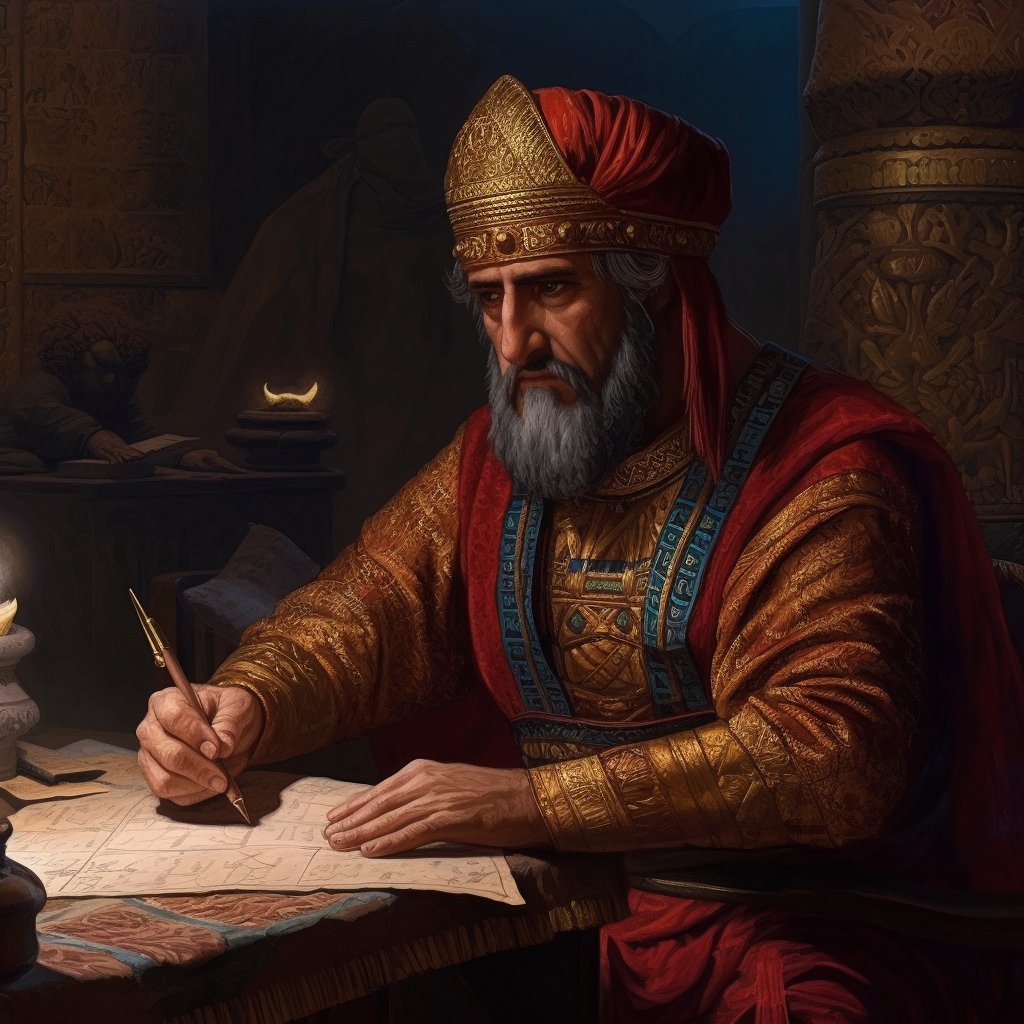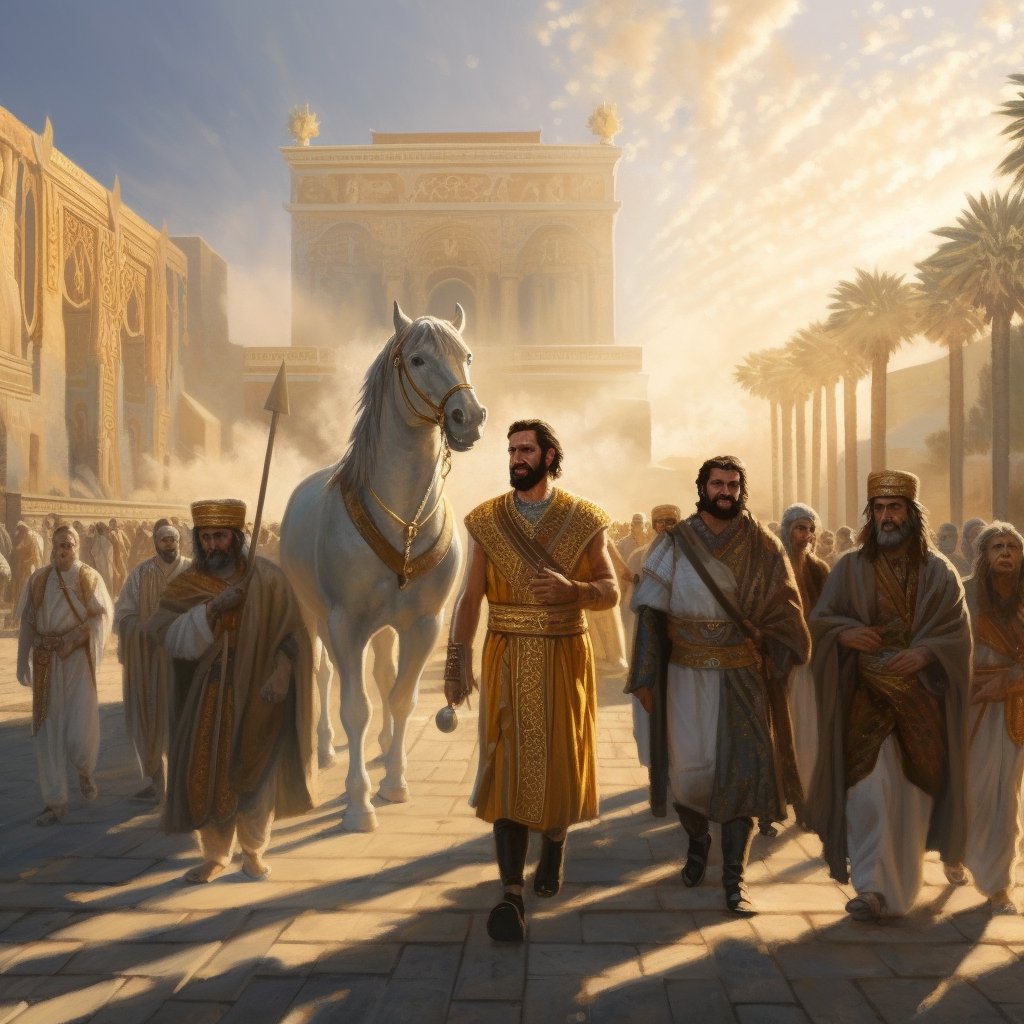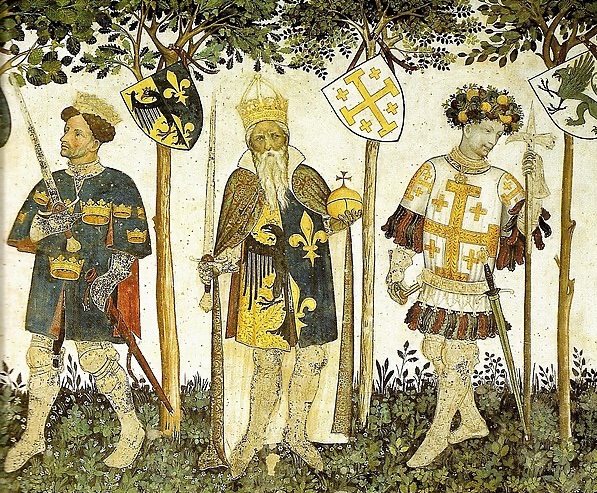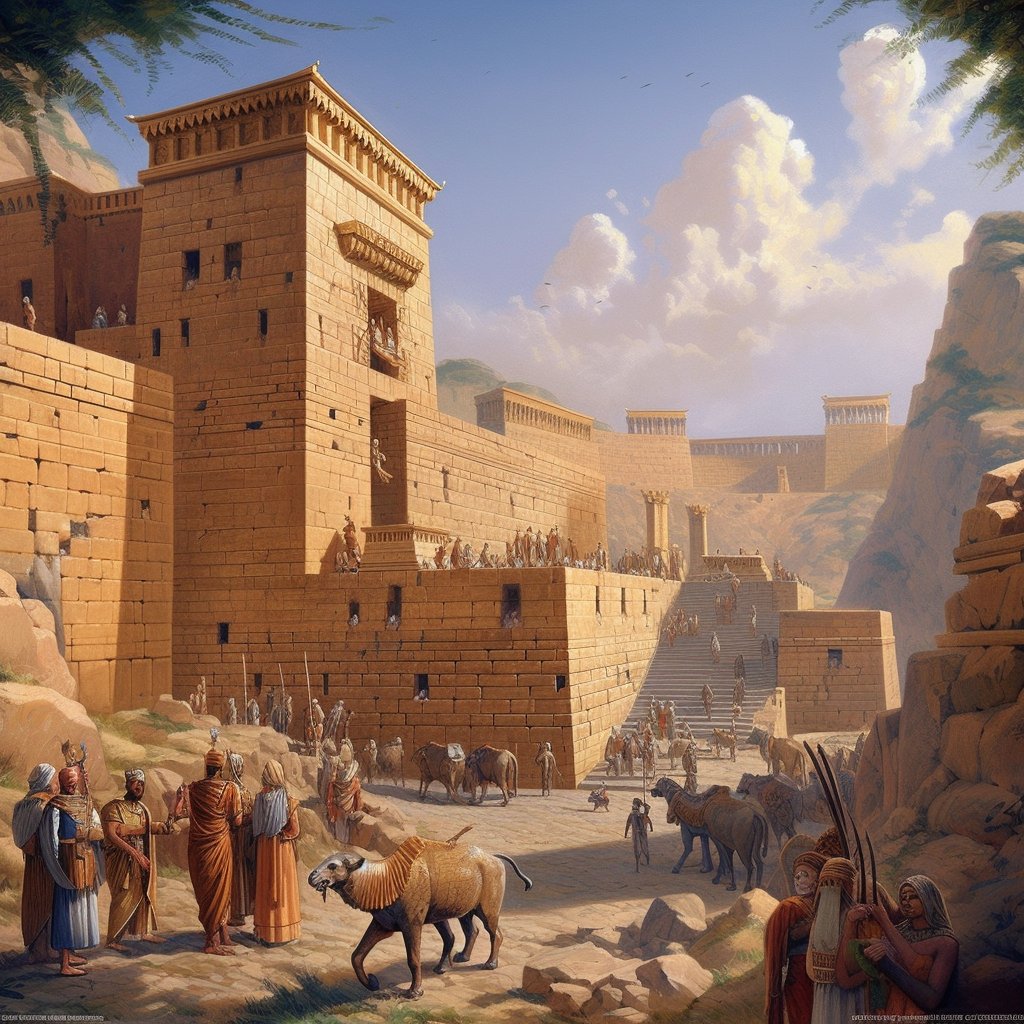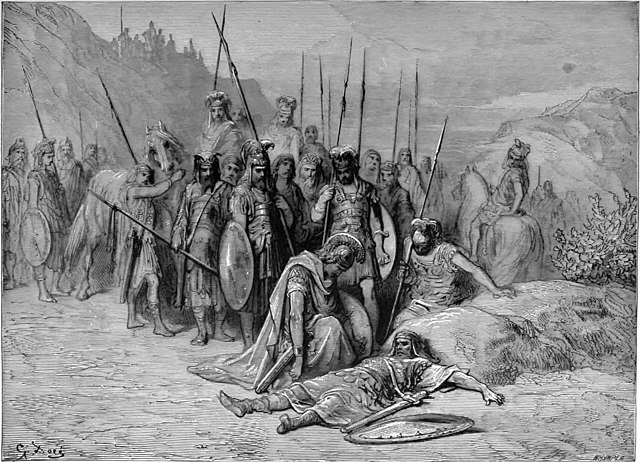Napoleon studied Julius Caesar.
Julius Caesar studied Alexander the Great.
But who did Alexander the Great study?
Cyrus the Great…
Before we start this thread, the most famous telling of Cyrus’ story comes from Xenophone’s "Cyropaedia" (a biography).
Here is a list of people who studied the work:
-Bacon
-Rousseau
-Montaigne
-Bolingbroke
-Shaftesbury
-Montesquieu
-Jonathan Swift
Continued...
-Edward Gibbon
-Benjamin Franklin
-Thomas Jefferson (he was said to have kept two copies of Cyropaedia in his library)
Quite the lineup.
We should probably study Cyrus too then...
Like a lot of the ancient texts, Xenophone’s work is fanciful.
It’s hard to say just how much of this biography on Cyrus the Great is legitimate and how much is simply made up.
Specifically, his upbringing…
His birth and the events that took place right afterward, are a story for another time (specifically his paranoid grandfather).
We are going to focus on Cyrus’ kingship and Xenophone’s analysis of his character.
And there's a lot of valuable knowledge to unpack here...
Cyrus the Great lived from c. 590 B.C. to c. 529 B.C.
Throughout his reign, he built a military machine out of the Persians.
With this Persian army, he would conquer: the Scythians (Medes), Armenians (Lydians), and Assyrians (Babylonians).
Cyrus established the largest empire to have ever been created up until that point.
Throughout his conquered lands, he set up a vast federal government (first of its kind really).
He appointed trusted men called: “satraps” throughout his empire to help him run things smoothly.
Cyrus was a master delegator:
“Cyrus then constituted different officers to take care of different affairs. He had his receivers of the revenues, his pay-masters, overseers of his works, keepers of his treasures, and officers to provide things that were proper for...
…his table. He appointed, as masters of his horse and of his dogs, such as he thought would provide him with the best of these kinds of creatures for his use. But as to those, whom he thought fit to have...
...as joint guardians of his power and grandeur, he himself took care to have them the best; he did not give this in charge to others, but thought it his own business.”
Summed up: He delegated. And took it seriously when it really mattered.
He did everything he could to have others tackle micro-tasks, so he could address the macro tasks.
An important idea for leadership.
You can’t lead your people to the promised lands if you don’t have time to pick your head up and construct a vision for yourself and your people.
And his delegation was built on meritocracy, something sorrowfully lacking today:
“The chief method of all that he used to necessitate men to attend was this, that, in case a man did not yield obedience to these other...
...methods [after he listed some other minor ways he implemented efficiency in his empire], he then took what he had from him, and gave it to another man that he thought would be able to attend upon the proper occasions. And thus he gained...
a useful friend, instead of a useless one.”
He basically, just gave more resources to those who showed up and got shit done.
This is quite a simple idea, yet many have somehow forgotten it in today’s world.
Put people in power that have proven themselves.
The only route to power should be through earning it (proof of work essentially).
Can you think of one extremely successful empire, company, team, etc. that excelled because they were “diverse” or brown nosing?
Exactly…
Cyrus also led by example.
He believed deeply in the importance of holding himself to high standards so that these standards would trickle down throughout his people:
“He was of opinion, that he should the better inspire other men with respect and awe, if he himself appeared...
…to pay so great a respect to all, as never to say or do anything shameful and vile: and that it would fall out thus, he grounded his argument upon this; that not only in the case of a prince, but even of such as men had no fear of, they paid more respect to those that...
…behaved respectfully than they did to the impudent. And such women, as they observed to be modest and respectful, they were the more ready to pay respect to… by showing his own goodness and modesty of temper, he made all others the more ready to practice it.”
Let’s go deeper.
Xenophone continues describing Cyrus’ leading by example:
“He thought, likewise, to make men practice a command of their passions best, by showing that he himself was not drawn away, by present pleasures, from the pursuit of good and excellent things; and that he...
...preferred toil and labour in the pursuit of a noble end before all delights. Being, therefore, such a man himself, he established an excellent order at his doors; the meaner sort submitting to the better, and all behaving with great awe and...
...decency one towards another. You would not see anyone there in anger, breaking out into noise and clamour, nor expressing an insulting pleasure in insolent laughter. But to see them, you would think that they...
...really lived in the most comely and noble manner. In the practice of such things as these, and with such things always before their eyes, they passed their days at the doors of Cyrus.”
Cyrus essentially made sure he was seen working on the mission and pursuing righteousness.
In many ways, Xenophone’s biography of Cyrus was a book on leadership.
In fact, the book was often associated with the genre of medieval “mirrors of princes.”
This literature was a genre of advice literature that outlined basic principles of conduct for rulers.
What was really impressive is that this Achaemenid empire Cyrus founded, grew to far greater heights even after his death.
The longevity of a prosperous empire is a massive testament to that ruler’s leadership/administrative abilties.
This Persian empire was eventually thwarted after a couple centuries during Darius I's reign, unfortunately.
By none other than Alexander the Great himself.
But what can we learn from what has been laid out here?
USEFUL KNOWLEDGE:
1. Delegate whenever possible. Having others take care of micro tasks allows you to focus on the macro which you as the leader are really the only one that can tackle
2. Build your delegation with meritocracy. Put people in power who have proven their
Here is a translated version of Cyropædia (Biography of Cyrus by Xenophon):
https://t.co/gRuqeN9rJu
Darius III was defeated by Alexander the Great, not Darius the I - mistyped
Napoleon studied Julius Caesar.
Julius Caesar studied Alexander the Great.
But who did Alexander the Great study?
Cyrus the Great… Before we start this thread, the most famous telling of Cyrus’ story comes from Xenophone’s "Cyropaedia" (a biography).
Here is a list of people who studied the work:
-Bacon
-Rousseau
-Montaigne
-Bolingbroke
-Shaftesbury
-Montesquieu
-Jonathan Swift
Continued... -Edward Gibbon
-Benjamin Franklin
-Thomas Jefferson (he was said to have kept two copies of Cyropaedia in his library)
Quite the lineup.
We should probably study Cyrus too then... Like a lot of the ancient texts, Xenophone’s work is fanciful.
It’s hard to say just how much of this biography on Cyrus the Great is legitimate and how much is simply made up.
Specifically, his upbringing… His birth and the events that took place right afterward, are a story for another time (specifically his paranoid grandfather).
We are going to focus on Cyrus’ kingship and Xenophone’s analysis of his character.
And there's a lot of valuable knowledge to unpack here... Cyrus the Great lived from c. 590 B.C. to c. 529 B.C.
Throughout his reign, he built a military machine out of the Persians.
With this Persian army, he would conquer: the Scythians (Medes), Armenians (Lydians), and Assyrians (Babylonians). Cyrus established the largest empire to have ever been created up until that point.
Throughout his conquered lands, he set up a vast federal government (first of its kind really).
He appointed trusted men called: “satraps” throughout his empire to help him run things smoothly. Cyrus was a master delegator:
“Cyrus then constituted different officers to take care of different affairs. He had his receivers of the revenues, his pay-masters, overseers of his works, keepers of his treasures, and officers to provide things that were proper for... …his table. He appointed, as masters of his horse and of his dogs, such as he thought would provide him with the best of these kinds of creatures for his use. But as to those, whom he thought fit to have... ...as joint guardians of his power and grandeur, he himself took care to have them the best; he did not give this in charge to others, but thought it his own business.”
Summed up: He delegated. And took it seriously when it really mattered. He did everything he could to have others tackle micro-tasks, so he could address the macro tasks.
An important idea for leadership.
You can’t lead your people to the promised lands if you don’t have time to pick your head up and construct a vision for yourself and your people. And his delegation was built on meritocracy, something sorrowfully lacking today:
“The chief method of all that he used to necessitate men to attend was this, that, in case a man did not yield obedience to these other... ...methods [after he listed some other minor ways he implemented efficiency in his empire], he then took what he had from him, and gave it to another man that he thought would be able to attend upon the proper occasions. And thus he gained... a useful friend, instead of a useless one.”
He basically, just gave more resources to those who showed up and got shit done.
This is quite a simple idea, yet many have somehow forgotten it in today’s world. Put people in power that have proven themselves.
The only route to power should be through earning it (proof of work essentially).
Can you think of one extremely successful empire, company, team, etc. that excelled because they were “diverse” or brown nosing?
Exactly… Cyrus also led by example.
He believed deeply in the importance of holding himself to high standards so that these standards would trickle down throughout his people:
“He was of opinion, that he should the better inspire other men with respect and awe, if he himself appeared... …to pay so great a respect to all, as never to say or do anything shameful and vile: and that it would fall out thus, he grounded his argument upon this; that not only in the case of a prince, but even of such as men had no fear of, they paid more respect to those that... …behaved respectfully than they did to the impudent. And such women, as they observed to be modest and respectful, they were the more ready to pay respect to… by showing his own goodness and modesty of temper, he made all others the more ready to practice it.”
Let’s go deeper. Xenophone continues describing Cyrus’ leading by example:
“He thought, likewise, to make men practice a command of their passions best, by showing that he himself was not drawn away, by present pleasures, from the pursuit of good and excellent things; and that he... ...preferred toil and labour in the pursuit of a noble end before all delights. Being, therefore, such a man himself, he established an excellent order at his doors; the meaner sort submitting to the better, and all behaving with great awe and... ...decency one towards another. You would not see anyone there in anger, breaking out into noise and clamour, nor expressing an insulting pleasure in insolent laughter. But to see them, you would think that they... ...really lived in the most comely and noble manner. In the practice of such things as these, and with such things always before their eyes, they passed their days at the doors of Cyrus.”
Cyrus essentially made sure he was seen working on the mission and pursuing righteousness. In many ways, Xenophone’s biography of Cyrus was a book on leadership.
In fact, the book was often associated with the genre of medieval “mirrors of princes.”
This literature was a genre of advice literature that outlined basic principles of conduct for rulers. What was really impressive is that this Achaemenid empire Cyrus founded, grew to far greater heights even after his death.
The longevity of a prosperous empire is a massive testament to that ruler’s leadership/administrative abilties. This Persian empire was eventually thwarted after a couple centuries during Darius I's reign, unfortunately.
By none other than Alexander the Great himself.
But what can we learn from what has been laid out here? USEFUL KNOWLEDGE:
1. Delegate whenever possible. Having others take care of micro tasks allows you to focus on the macro which you as the leader are really the only one that can tackle
2. Build your delegation with meritocracy. Put people in power who have proven their Here is a translated version of Cyropædia (Biography of Cyrus by Xenophon):
https://t.co/gRuqeN9rJuDarius III was defeated by Alexander the Great, not Darius the I - mistyped
yes
